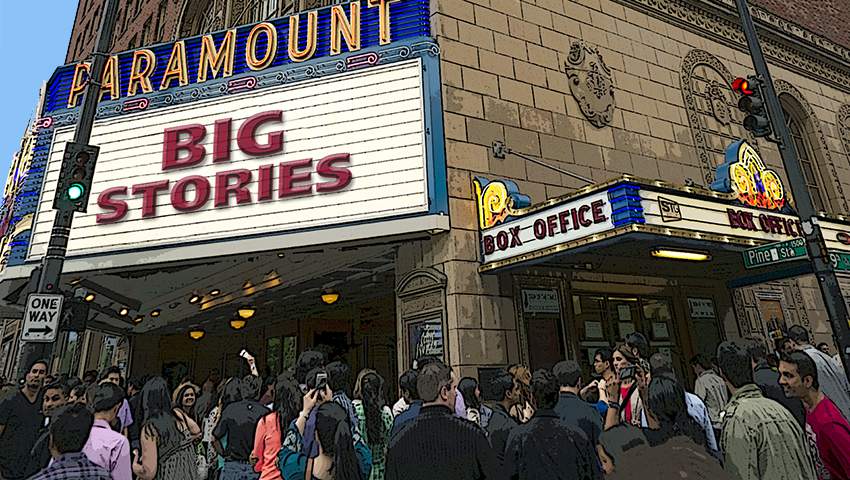Yossi Klein Halevi – The War against Passover
One of the finest articles to date about Jews/Israel/Passover by a wonderful friend, talented author and educator.
Originally posted in the Times of Israel blog section.
Who are the Jews? A religion? An ethnicity? A people? The question has taken on a special urgency in our time. At the heart of the anti-Zionist assault is the notion that the Jews aren’t a people but only a faith. That premise is normative throughout the Arab world, and especially in the Palestinian national movement, all of whose factions – from Fatah to Hamas – deny the existence of a distinct Jewish people with a right to national sovereignty.
The Jewish year cycle tells a different story. Passover celebrates the birth of the Jewish people, the beginning of a coherent historical narrative. Shavuot, two months later, celebrates the giving of the Torah at Sinai, imprinting the Jewish people with a distinct path to God. The Jews, then, are a people with a specific faith. In that order.
The Passover seder implicitly reinforces that hierarchy of identities. The essential seder ritual is the retelling of the exodus – “as though you yourself left Egypt” – and the message is: There is no Judaism without the Jewish people and its story.
My late teacher, Rabbi David Hartman, noted that the Hagaddah’s definition of Jewish heresy offers us a precise definition of Jewish identity. The “evil child” of the Hagaddah refers to the Jewish people as “you” rather than “us.” Unlike Christianity and Islam, say, where heresy is the rejection of belief, for Judaism heresy is self-exclusion from the community.
As a religious Jew, I believe that our relationship to God is the core, the purpose, of Jewish existence. I believe that contemporary Jewish life has been impoverished by the diminishment of the Divine, the abandonment of the quest for the living God in our collective and personal lives.
And yet Judaism itself grants legitimacy to the primacy of peoplehood over faith. The centrality of peoplehood in Jewish identity explains the strange anomaly of the Jewish atheist. Christians or Muslims who reject religious doctrine are no longer a part of their faith community; there is no such thing as a Christian or a Muslim atheist. Yet Jews who reject the most basic Judaic beliefs but still identify with the Jewish people and its values and its fate are universally regarded among Jews as one of us.
Paradoxically, peoplehood is given primacy over faith for the sake of the faith itself: The Jewish people is the carrier of Judaism. And so peoplehood is an essential religious category.
The centrality of peoplehood for Judaism is explained, in part, by the difference between a universalist and a particularist faith. All three monotheistic faiths share the same goal: the revelation of God’s presence in this world. But Judaism, once again, works a little differently. While one can of course convert and become a Jew, Judaism was never intended to be a universal faith, only the faith of a specific people – whose purpose is to be a spiritual avant garde within humanity for its eventual redemption. Judaism is a particularist strategy for a universalist goal.
(Conversion is a religious means to the goal of joining the Jewish people. Ruth the Moabite, the prototype convert, tells her mother in law, Naomi, “Your people will be my people, your God my God” – in that order.)
The early Reform movement tried to turn Judaism into a faith without a people and a land, and ultimately returned to a more classical understanding of Jewish identity. Even the ultra-Orthodox, who routinely place the most strict interpretation of Jewish law over the well-being of the Jewish people, accept peoplehood as a core religious principle.
The seder culminates with the affirmation, “Next year in Jerusalem,” a reminder that the Jewish story that begins in Egypt ends in the land of Israel. A specific people bound to a specific land, for the ultimate sake of all peoples and all lands.
This week, as Jews around the world prepare for Passover, the war against Jewish peoplehood – against Passover itself – took a particularly ugly turn. A UNESCO resolution on Jerusalem denied any Jewish attachment to the Temple Mount and the Western Wall – the Wall was identified with quotation marks, unlike its Muslim term, Al Buraq.
The resolution – supported by, among others, Sweden, France and Spain, whose leaders profess friendship for the Jews – gives tacit legitimacy to the Palestinian terror campaign of recent months. It ignores the fact that Israel bars Jews from praying on the Mount. That Palestinian groups have systematically destroyed ancient Jewish artifacts at the site.
But most of all, the UNESCO resolution erases us from our own story. There were no temples on the Temple Mount, the Mount isn’t the holiest site in Judaism, the Wall isn’t the heart of Jewish prayer. Of all the attempts to destroy us throughout our history, the campaign against history itself is the most devious.
Passover suggests this definition of the Jews: We are a story we tell ourselves about who we think we are. The current assault on the Jewish story is so dangerous precisely because it strikes at the core of Passover. If we lose the story, our sense of the basic justness of our narrative, we will lose the essence of our being.










